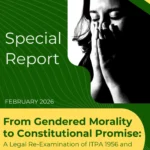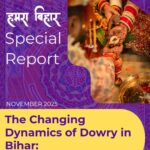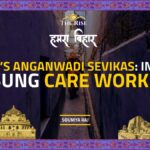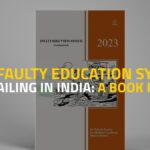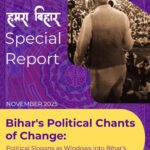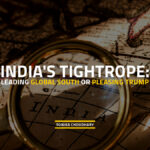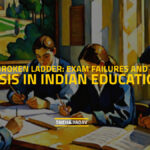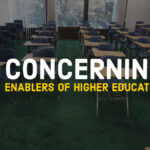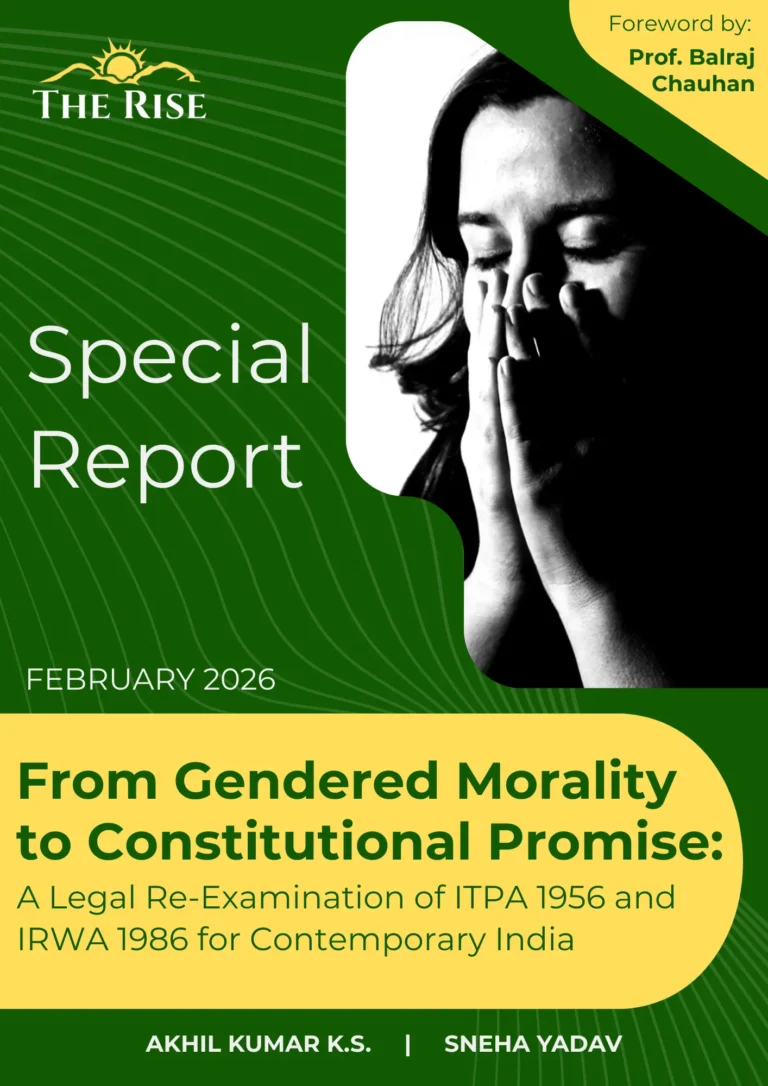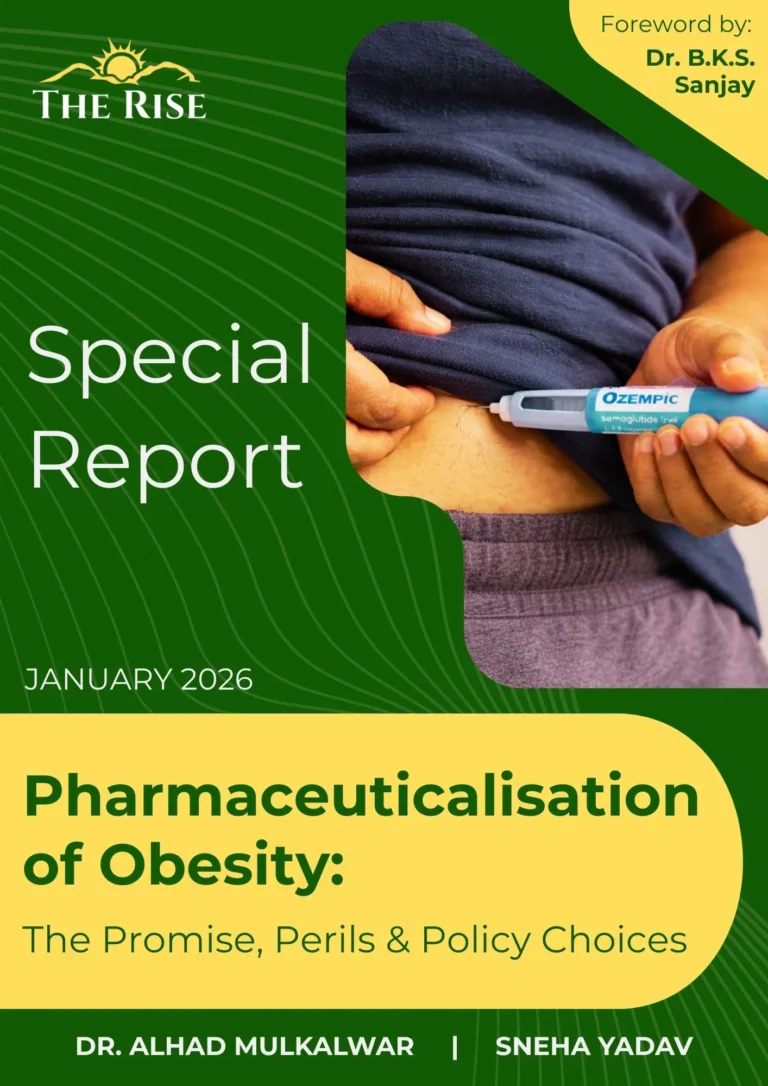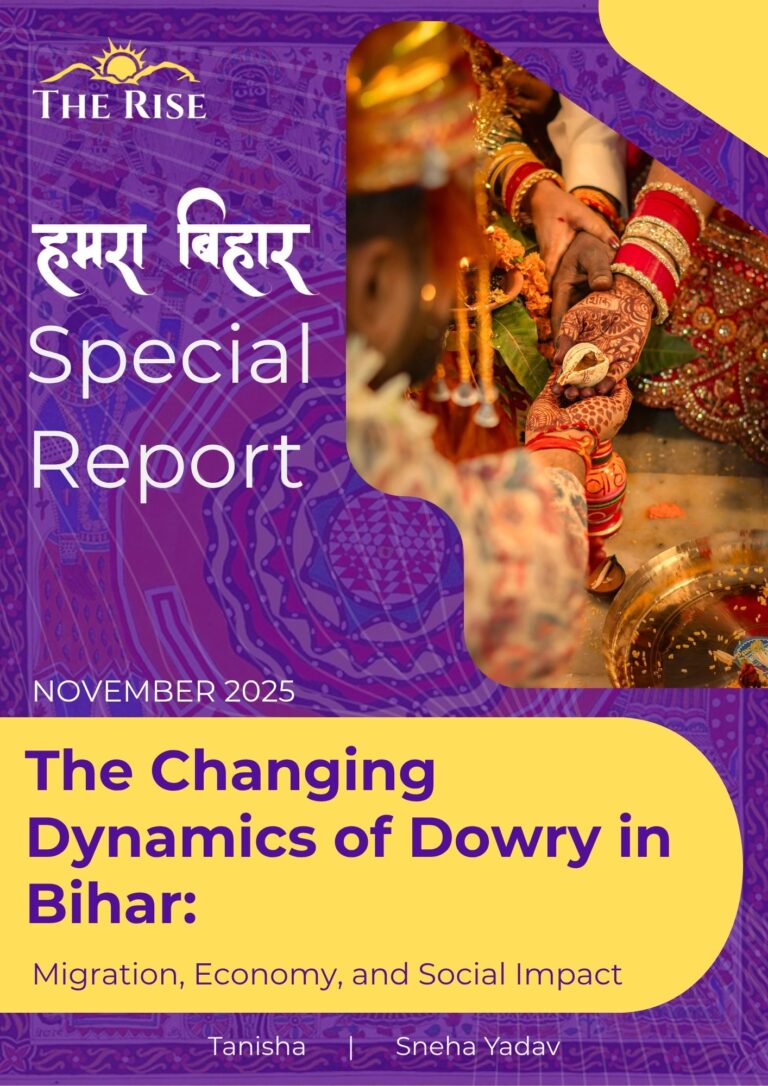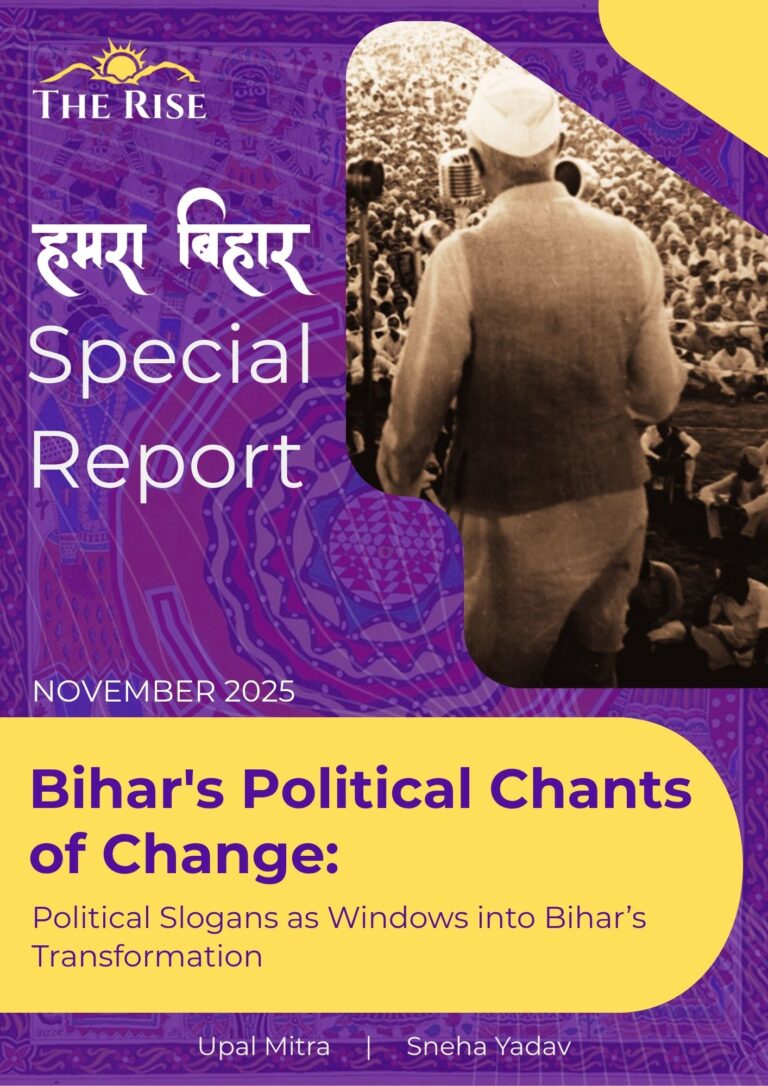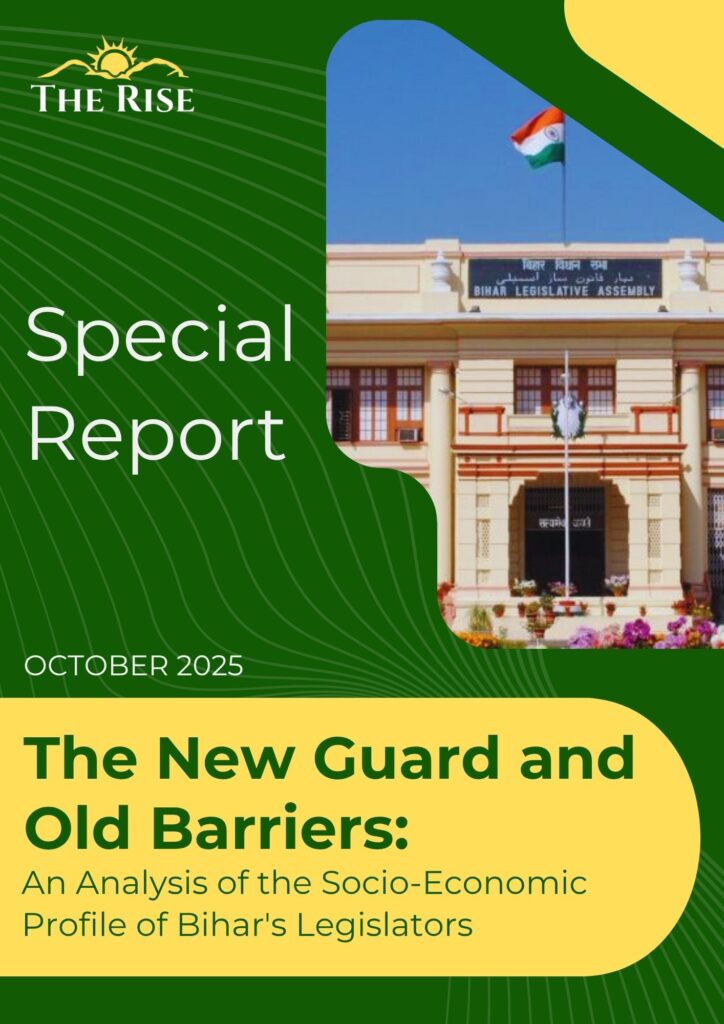
Bihar is considered one of the oldest lands of democracy, with the ‘Ganasangha’ of Vajji dating back to the 6th century BCE. However, the modern democratic politics of that state has been marred by trends of dynastic politics, the overhang of money and muscle power, and a lack of women representatives as legislators.
Dr. B.R. Ambedkar once said, “However good a Constitution may be, if those who are implementing it are not good, it will prove to be bad. However bad a Constitution may be, if those implementing it are good, it will prove to be good.” And legislators are the linchpin of India’s constitutional parliamentary democracy. Hence, to understand the hits and misses of the constitutional project in Bihar, an in-depth analysis of the profile of Bihar legislators holds the key. Such an approach helps not just in decoding what works in Bihar politics, but also unmasks the electoral behaviour of the voters of Bihar.
Association for Democratic Reforms (ADR) has done extensive work in this aspect. The authors of this report have drawn deep insights from ADR reports. However, a cross-cutting exploration of the legislators’ profile from the dimensions of age, assets, political lineage, educational background, and gender across the four political geographies of Bihar – Bhojpur, Magadh, Mithila, and Seemanchal – was missing. In the backdrop of the upcoming 2025 Bihar Assembly elections, the authors decided to explore these angles and suggest a few actionable solutions to improve the electoral democracy of Bihar.
This report extends beyond the conventional emphasis on established dynasties and social hierarchies by providing a comprehensive, statistically informed socio-economic analysis of a sample of 40 sitting MLAs of the Bihar Vidhan Sabha who navigate the delicate balance between progress and stagnation.
It profiles leaders whose rise is marked by advanced education and grassroots affiliations, challenging entrenched privilege. At the same time, it examines enduring obstacles: the persistent influence of financial resources, which serves as a modern political gatekeeping mechanism, and the significant gender disparity that continues to exclude a substantial segment of the state’s population from high-level political roles. By presenting this dual narrative, the report provides a detailed and nuanced analysis of the factors likely to shape Bihar’s legislative future.
Key Findings:
The analysis of 40 legislators (MLAs) across Bihar’s regions reveals a state in political transition, where educational qualifications, generational shifts and economic profiles of the legislators are reshaping the Bihar’s legislative profile.
- Rise of Educated Political Leadership
- The analysis reveals a clear shift, with a higher proportion of highly educated individuals taking up politics as a professional career. Out of the 40 MLAs analysed, 24 MLAs (60%) hold either a graduate or a postgraduate degree.
- The findings suggests that Bihar’s political sphere is increasingly valuing intellectual competence, professional expertise, and formal academic credentials.
- Regional Profiles: Contrasts and Commonalities
- Bhojpur: Bhojpur presents the most educationally diverse profile. While a majority of its legislators are graduates, the region also includes members with lower levels of schooling (12th pass and even below 12th) alongside a small share of post-graduates and doctorates. The region has significant elderly presence, with 31.25% of its MLAs aged 70 years and above. It also records the highest share of non-crorepati legislators (31.25% of the sample), indicating a modest wealth base and a continued space for non-elite representation.
- Magadh: Magadh stands out as Bihar’s “doctorate hub” with 37.5% of MLAs holding Ph.D. degrees. It shows a strong dynastic continuity with half (50%) of its representatives belonging to political families. Also, with 62.5% of the MLAs are in the 30-50 age group, making it the youngest region in the sample. Magadh’s legislators top the wealth chart, reflecting the intersection of youth, education and inherited privilege.
- Mithila: In Mithila, one-fourth (25%) of MLAs are postgraduates, demonstrating a solid educational base.The region has a 25% share of second-generation MLAs, marking moderate dynastic presence alongside a majority of first-generation entrants.
- Seemanchal: Seemanchal leads in graduate representation, with 87.5% of its MLAs holding graduate degrees. Dynastic representation is low (12.5%), suggesting open competition and a first-generation leadership pattern. However, it is also elderly dominated region, with 37.5% of the MLAs aged 70 and above. Seemanchal, also has substantial number of crorepatis, though but most fall within ₹1-3 crore asset range.
- Party-Wise Trends
- JD(U) and RJD lean towards younger leadership, with over 60% of MLAs between 30–60 years.
- The BJP’s representation skews older, with two-thirds of its sampled MLAs aged 60+, pointing to a seniority-driven leadership culture.BJP and JD(U), by contrast, show a high concentration of crorepati MLAs, while RJD exhibits a mixed economic profile with both affluent and modest members.
- However, CPI(ML)L legislators uniformly report assets under ₹1 crore.
- Wealth, Legacy and Age: The Interlocking Factors
- The wealthiest MLAs are often second-generation politicians. Overall, first-generation MLAs (29 in total) report average assets of ₹3.05 crore, while second-generation MLAs (11) average ₹4.12 crore, indicating a clear financial advantage associated with political lineage.
- The youngest legislators often belong to established political families, indicating how dynastic networks facilitate early political entry.
Get a hard copy delivered at your doorstep:
Terms & Conditions:
- Order cancellation procedure: Mail at support@therise.co.in requesting order cancellation with a valid reason within the first 24 hours of order placement. The payment receipt must be mandatorily attached, without which no order cancellation request will be entertained.
- Returns/Replacement: No return/replacement is possible
- Refunds: The complete amount is refundable if the order cancellation request is received at support@therise.co.in within the first 24 hours of the order placement. Refund will be issued in 5-7 working days.
About the author
Prikshit Rathore is a third-year B.A. LL.B. (Hons.) student at Gujarat National Law University, Silvassa Campus. His research interests encompass policy analysis, educational equity, and social development, with an emphasis on interdisciplinary methodologies for legal reform and socio-legal issues.
Sneha Yadav is an electronics engineer with a postgraduate degree in political science. Her interests span contemporary social, economic, administrative, and political issues in India. She has worked with CSDS-Lokniti and has been previously associated with The Pioneer and ThePrint.
-
Sneha Yadav
-
Sneha Yadav
-
Sneha Yadav
-
Sneha Yadav
-
Sneha Yadav
-
Sneha Yadav
-
Sneha Yadav
-
Sneha Yadav
-
Sneha Yadav
-
Sneha Yadav
-
Sneha Yadav
-
Sneha Yadav
-
Sneha Yadav
-
Sneha Yadav
-
Sneha Yadav
-
Sneha Yadav
-
Sneha Yadav
-
Sneha Yadav
-
Sneha Yadav
-
Sneha Yadav
-
Sneha Yadav
-
Sneha Yadav
-
Sneha Yadav
-
Sneha Yadav
-
Sneha Yadav
-
Sneha Yadav
-
Sneha Yadav
-
Sneha Yadav
-
Sneha Yadav
-
Sneha Yadav




